Pregnancy can be nerve-racking, for both first time mums and experienced mums. You may be constantly wondering if everything is going as it should.
Childbirth may come with many surprises, and not all of them pleasant.
So it’s so important to prepare yourself physically and mentally for what could possibly happen. As well as learn how you can reduce your risks.
Preparing for birth also means preparing for the unexpected.
We sat down with Dr Sundar Gugan, visiting consultant obstetrician and gynaecologist at Columbia Asia Hospital, Petaling Jaya, to talk about pregnancy—preparing for the unexpected.
Here are some things every expecting mother should know about the unexpected risks and symptoms of pregnancy, as well some fool-proof tips on how to navigate them.
Q1: Who is at risk for pregnancy complications? And do we all have the same risk?
Anyone can be at risk of complications during their pregnancy, but your risk is higher if you have chronic medical conditions or you have some illness prior to pregnancy.
Some examples of health conditions or diseases that may cause complications during pregnancy are diabetes or cancer.
Also, some people have high blood pressure, hypertension, prior to pregnancy while others develop it during pregnancy. This can cause the baby to not get enough blood.
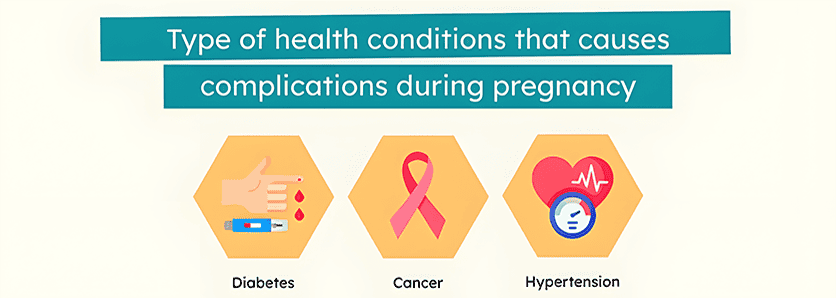
Kidney problems, epilepsy, anaemia and other factors that may increase the risk of pregnancy complications include being older than 35, being younger than 20, smoking cigarettes, drinking alcohol, and taking illicit drugs.
Of course, being pregnant with multiple babies like twins, triplets or more. And those who have a history of repeated miscarriages.
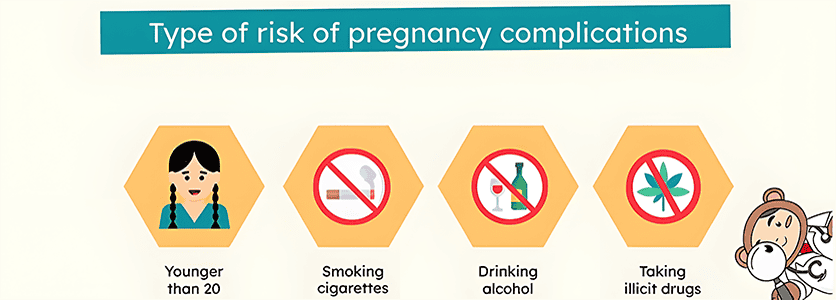
Being over- or underweight also increases pregnancy risk. Obesity, BMI more than 30 and anorexia, which is BMI less than 20.
So maybe while pregnancy is a natural and normal process, it does come with risks for some women.
And every woman is different and may have varying degrees of risk for pregnancy complications depending on their health status, age and other factors like the doctor mentioned just now.
Q2: What are the most common complications of pregnancy?
Here are some common complications during pregnancies. The first is ectopic pregnancy, a condition where the fertilised egg implants outside the uterus.
Miscarriage is also a big pregnancy complication. It is a loss of pregnancy in the first 20 weeks. It occurs about 10% of the time, about one in five pregnancies.
There is also hyperemesis gravidarum, which is a severe form of nausea, vomiting in pregnancy.

It can cause severe dehydration, lean body weight loss and causes electrolyte imbalance and it could be quite catastrophic, actually.
Of course, congenital disorders.
If your doctor suspects the foetus has a health issue or a congenital disease, you’re at higher risk for complications during the pregnancy.
This may mean you need additional monitoring and your baby needs special care after birth.
Another one is preeclampsia is a blood pressure problem which occurs after 20 weeks of pregnancy.
It occurs about 10% of people who develop this during pregnancy. It’s more common with people who already have high blood pressure prior to pregnancy.
Gestational diabetes, is another one, which is a type of diabetes which occurs during pregnancy.
It happens because the pregnancy hormone makes it harder for the body to metabolise the blood sugar. So usually you would be given a sugar screening test during your pregnancy.
Other things include infections, viral and bacterial infections can complicate pregnancy, like urinary tract infection, which can cause preterm labour. There’s also group B Streptococcus which can cause infection to the baby.
There’s also sexual transmitted infection which also causes preterm labour and infection to the baby and such.
And of course, we call the Torch Infection which is like toxoplasma, rubella, cytomegalovirus and herpes which causes congenital infections for the baby.
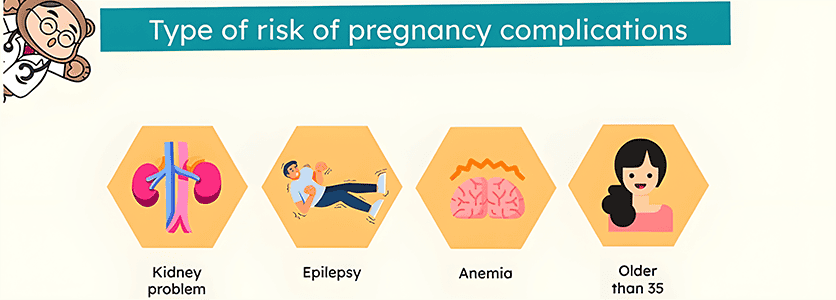
Vaginal bleeding which could be either heavy or excessive bleeding during pregnancy. That is an emergency and that one you need to see your doctor immediately if such happens.
Placenta increta. So the increta is when the placenta is embedded deeply into the uterine tissue and it’s very difficult to come out after the delivery and causes severe bleeding and sometimes, we need to remove the womb to arrest the bleeding.
And the worst part of the placenta increta spectrum is called percreta.
And percreta actually the placenta invades not only into the uterine tissue as well, it goes to the adjacent tissue like bladder, bowel and such.
And not only does it might require the removal of the womb but there might be injury to the bowel and bladder and such.
Preterm labour, which is a delivery before the age before your gestational age before 37 weeks.

This can cause a problem for your baby because the baby might be born with a lower birth weight and slightly underdeveloped organs, depending on the gestation.
Oligohydramnios, which is actually like a low level of amniotic fluid because the baby is swimming inside the amniotic fluid.
And if it’s less, it of course causes risk of premature birth or iatrogenic birth because we might consider delivering earlier as well polyhydramnios, which is the other version of it where there’s more a lot of excessive fluid.
Also causes preterm birth as well.
And the most sinister of all is amniotic fluid embolism. It has a very high mortality rate that means it causes a higher amount of death and usually we kind of diagnose it much later.
So basically, what happens is the debris from the amniotic fluid or the foetus goes into the maternal circulation and causes cardiovascular collapse. It’s almost immediate and sudden.
Depression, anxiety and extreme sadness during pregnancy and mainly after post-delivery. It is overwhelming and can affect a baby’s development and the family.
Anaemia can be bad because the haemoglobin, which is the low level which we call anaemia, it carries oxygen throughout very important parts of your body.
So, it needs to be corrected. And the usual cause of it is iron deficiency. So it can be corrected with the supplementation of iron or injection, now what we have.
In Malaysia, we should be looking out for other anaemia such as thalassemia. Yes, that’s a problem because the haemoglobin kind of dies much faster than usual. So that’s another cause.
It’s so important for mums to recognise disease symptoms and seek help as early as possible.
Q3: Can pregnancy complications cause a premature birth? What are the health effects on premature babies?
Premature birth is a birth which is a baby being born before 37 weeks of pregnancy.
Some health problems can raise the risk of premature birth such as problems with the uterus, cervix, sometimes we call it cervical incompetence or placental issues.
Some infections like we talked about earlier and many of the amniotic fluid and lower genital tract.
Ongoing health problems such as high blood pressure or diabetes also could be the cause of premature delivery or iatrogenic premature delivery. This means we facilitate the delivery for some issues.
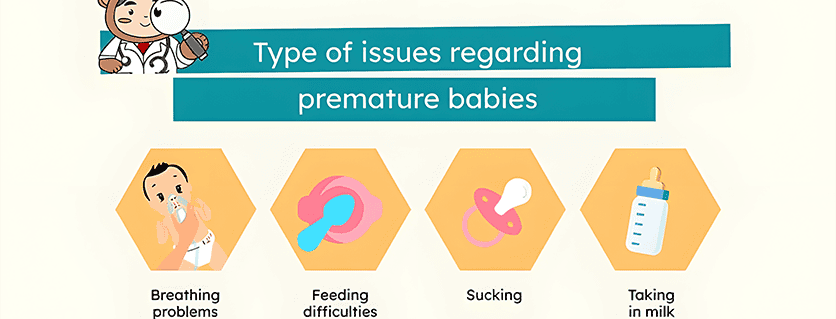
And of course, injuries or trauma to the body sometimes can cause premature delivery as well.
Babies born prematurely may have more health problems at birth and later in life than babies born at full term because their organs did not have enough time to fully develop.
The baby might have some issues which includes breathing problems because the lung is not fully developed so they can’t breathe properly, they need assistance.
Feeding difficulties, sucking, taking in the milk and of course, higher risk of developing cerebral palsy, vision problems, hearing problems.
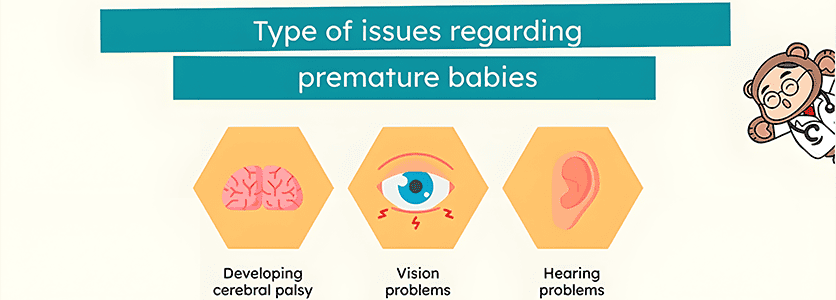
Premature babies also need to spend some time in the newborn intensive unit called the NICU.
Premature baby stays in the NICU until the organs develop enough to stay alive by themselves without medical support.
And some babies need to be in the NICU for weeks or months until they can breathe on their own, eat by their own mouth and feed themselves and maintain their body temperature and body weight.
Babies born preterm are also at risk of developmental delays and that can affect their behaviour and ability to learn.
Finding and treating health problems as early as possible can help premature babies lead to healthier lives. I do know many parents who had premature babies that grew up to be healthy and happy.
Thanks to advances in medical care, even babies born prematurely are more likely to survive and thrive today than ever before.
Babies that are born prematurely are required to stay in the hospital’s newborn intensive care unit (NICU) to receive medical treatment until they are well enough to go home.
Q4: Do all premature babies go through caesarean section?
In some cases, premature babies can be delivered naturally, but it depends on the circumstances and gestation age of the baby.
For a premature labour baby before 37 weeks of pregnancy, your doctor will evaluate the situation to determine the safest method of delivery for both mum and the baby.
In some cases, if the baby is in a good position, which is basically what we call cephalic when the baby’s head is down and the cervix is fully dilated, a vaginal delivery is possible.
In other cases, an emergency caesarean section may be recommended for preterm births.
If there are such medical reasons, such as there are concerns for the safety of your baby, and there’s a life threatening emergency for you or your baby.
If your labour is not progressing normally and there are complications, such as bleeding during the labour, severe preeclampsia, the high blood pressure.
Those are some of the reasons why we might end up doing the caesarean section.
Q5: Is it possible to prevent pregnancy complications? If so, how?
There are several steps that can be taken to prepare for pregnancy complications.
Of course, seeking prenatal care early and regular prenatal care can help to identify and manage any potential complications.
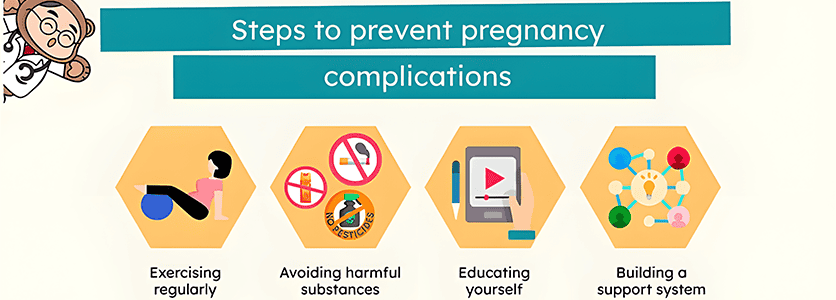
It is important to attend all the appointments and to communicate very openly with your healthcare provider about any concerns of your symptoms that you may experience.
Maintaining a healthy lifestyle, eating a healthy diet, exercising regularly, and avoiding harmful substances such as tobacco or alcohol or illicit drugs can help to reduce risk of complications.
Educating yourself. Learn about the signs and symptoms of pregnancy complications such as preeclampsia, gestational diabetes, preterm labour; this can help you to recognise when to seek medical attention.
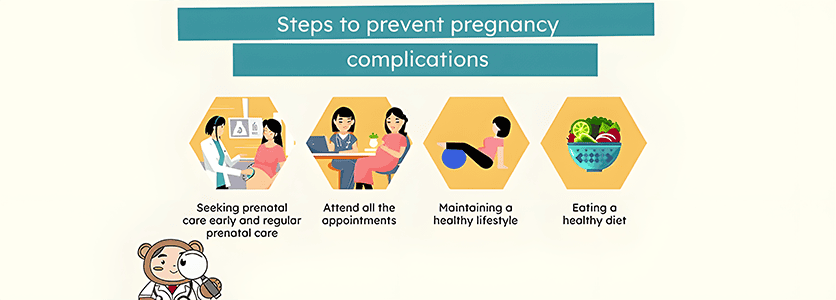
Building a support system. Having a very supportive partner, family members and healthcare team can make a big difference in managing complications, navigating the challenges that may arise during pregnancy.
Remember, while it is important to be aware of the risk of pregnancy complications and take steps to prepare, it is also important to focus on the positive aspect of pregnancy and enjoy this special time in your life.
This article first appeared in Motherhood.com.my, 9 May 2023.
Share:
Was this article helpful?
Share:
Was this article helpful?
Health Packages
Elevate your health with tailored health packages at Columbia Asia Hospital. Take charge of your health journey today.
Pink October 2024
From
RM80
12.12 CheckJer Health Package
RM140
Find Out MoreHLA Policyholders Promo: Influenza Vaccination
RM65
Find Out MoreColumbia Asia 30th Anniversary Promotion “Maternity & Baby”
Pink October 2025
From
RM80

